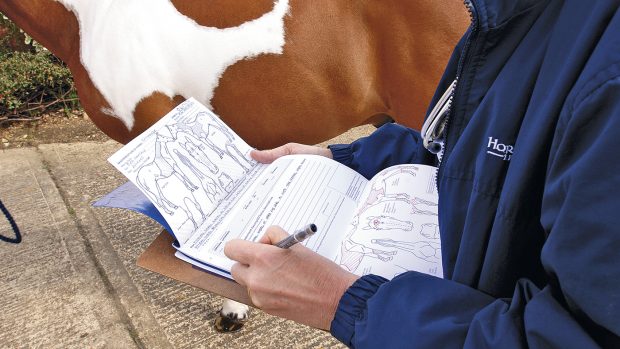More articles on equine castration
Find an equine vet
Q: Should I have my 18-month-old colt castrated?
A: Your colt is already at an age where he is capable of fertilising a mare. If he’s allowed to remain an entire he will become more of a handful as he grows older.
Unless you are experienced in handling stallions and have the time and correct facilities, it would be kinder on all concerned to have your colt gelded. Otherwise, you’ll find it impractical to keep him with other horses.
Turning him out with geldings or stallions would increase the risk of serious injury while the presence of mares poses the problem of unwanted pregnancies.
Gelding your colt will not only make him sterile, but ensure he’s more docile and easier to control, especially around mares.
Q:What does the operation entail and will it hurt?
A: British law requires castration to be carried out by a qualified vet, using anaesthetic – so no, your colt won’t feel a thing!
The operation involves the removal of the testes, which will prevent your colt from developing further stallion-like characteristics.
Castration can either be carried out while your colt is standing – one method is when anaesthetic is injected deep into the testis – or lying down under general anaesthetic.
Most castrations are performed “open” – the wound through the scrotum being left open. The ‘closed’ technique seals off this opening.
Q: At what age should I have my colt castrated?
A: Castration can be carried out at any age although between six months and two years old is usually the norm, so now is certainly a good time.
However, some breeders prefer their colts to be gelded at three or four because the longer timespan allows them to develop further physically, although they’re likely to retain more sexual behaviour.
Q: When should the operation be carried out?
A: The best time of year is either spring, before there are too many flies about to pose the problem of infection, or in the autumn.
Most standing castrations are done in the stable and many colts are successfully gelded under general anaesthetic in a field.
However, some owners and many vets prefer to take their animals to an equine clinic in case complications arise.
Q: How long is the recovery period and when can I turn him out?
A: You’ll need to keep a close eye on the patient for 12 hours after the operation and then check him at regular intervals for the first week.
Turn the patient out afterwards as this will help encourage drainage and reduce the likelihood of swelling. In fact, exercise from the second day of recovery is recommended. Cleanliness, too, is very important.
Your vet may give post-operative antibiotics and will ensure your new gelding is protected against tetanus.
Ask him for any additional advice on nursing care. The wound should take about two weeks to heal. The neutered horse can remain fertile for some weeks so it’s advisable to keep mares and newly-gelded colts separate for at least a fortnight.
Q: Are there any risks or side effects to the operation?
A: Although castration is an uncomplicated and straightforward procedure in most cases, problems can still occur, although these are rare. Watch out for the following warningsigns:
- Bleeding — it’s common for a small amount of post-operative blood to drain away, but anything more than a trickle should be dealt with by a vet.
- Excessive swelling — some swelling is normal after castration but if it hasn’t resolved by 12 days after the operation, call your vet. Swelling probably indicates active infection.
- Anything dangling from the wound, such as when the abdominal contents escape, or herniate, through the gap — call a vet immediately.
Looking for more articles on equine castration?
Find an equine vet near you


